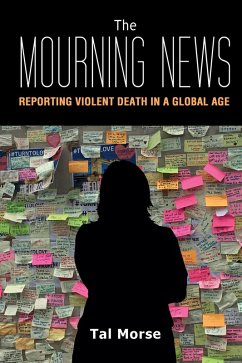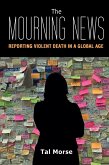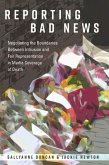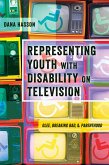A conventional wisdom in media studies is that "when it bleeds it leads". The media love violence and from the newsroom perspective, negative news is good news. Violent death often makes it to the headlines, and mass violent death events often become media events that receive immediate continuous attention worldwide. However, reporting violent death is not only about sending information, but also about the maintenance of society. News about violent death functions as media rituals which elicit grief and inform a sense of care and belonging. Accordingly, this book takes a broader sociological and anthropological approach to considering the role of death and the media in organising social life in a global age. Based on literature on solidarity and social cohesion, death rituals, media rituals, and journalism studies, this book examines whether and how the performance of the media at the occurrence of mass violent death events informs solidarity and interconnectedness on a cosmopolitan level.
The book develops the analytics of grievability as an analytical framework that unpacks the ways in which news about death constructs grievable death and articulates relational ties between spectators and sufferers. The book employs the analytics of grievability in a comparative manner and analyses the coverage of three different case studies (terror attack, war and natural disaster) by two transnational news networks (BBC World News and Al-Jazeera English). This comparative analysis showcases the centrality of news media in selectively cultivating a sense of cosmopolitan solidarity in a global age.
The book develops the analytics of grievability as an analytical framework that unpacks the ways in which news about death constructs grievable death and articulates relational ties between spectators and sufferers. The book employs the analytics of grievability in a comparative manner and analyses the coverage of three different case studies (terror attack, war and natural disaster) by two transnational news networks (BBC World News and Al-Jazeera English). This comparative analysis showcases the centrality of news media in selectively cultivating a sense of cosmopolitan solidarity in a global age.
Dieser Download kann aus rechtlichen Gründen nur mit Rechnungsadresse in A, D ausgeliefert werden.
"Do we grieve for the deaths of strangers, and if so, by what means? Are all strangers made equal in this grief by the representation of their deaths in contemporary media? And can media representations of the deaths of strangers create and sustain a cosmopolitan framework of ethical care that transcends national boundaries and global power asymmetries? These are the urgent moral, political and communicative questions posed with interpretative acuity in Tal Morse's comparative exploration of television news coverage of mass-death events-the 2011 Norway Attacks, the 2008-2009 Gaza War, and the 2010 Haitian Earthquake. Insightful and profound, The Mourning News casts a powerful new light on how media shape the terrain of global moral concern."-Paul Frosh, Professor, Department of Communication and Journalism, The Hebrew University of Jerusalem









